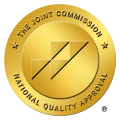Addressing Domestic Violence During Addiction Treatment
Domestic violence and addiction are linked and affect treatment. Here is what you need to know about domestic violence and how addiction treatment can help.
Article Contents
What is Domestic Violence?
Domestic violence, also referred to as domestic abuse and intimate partner violence, is any behavior in a relationship that one does to get or keep control over their intimate partner. Domestic violence can occur within a range of relationships, including couples who are dating, living together, or married. This violence includes, but is not limited to, misdemeanor or felony crimes committed by a current or former partner.
Some common forms of domestic violence include:
- Emotional Abuse
- Physical Abuse
- Psychological
- Sexual Abuse
- Financial Abuse
Domestic abuse includes any behaviors that intimidate, terrorize, manipulate, hurt, humiliate, or otherwise frighten someone.
No group of people is immune from domestic violence. It affects people of every socioeconomic background and education level and happens to people of every age, gender, religion, sexual orientation, and race.
What is Trauma Bonding?
A trauma bond, sometimes called battered woman syndrome, is a primal survival response to abuse where the abused becomes powerfully attached to the abuser.
A common misconception is that people in an abusive relationship should leave their partner. However, it is not easy for many people. For some, it takes a serious financial toll. For others, leaving can escalate the abuse and possibly put their life in more danger. Moreover, many individuals form a trauma bond that makes it difficult, even impossible, to leave their partner.
In a trauma bond, an emotional attachment develops from abuse that starts with cycles of positive reinforcement mixed with abuse and devaluation. Because of the good cycles, the person who is abused holds hope that their partner can change. They can defend the harmful behavior or hide it from others to stay with their abuser.
A trauma bond is not limited to romantic relationships. It can also occur in situations with child abuse, elder abuse, human trafficking, and religious cults, among others.
Addiction and Causes of Domestic Violence
Domestic violence and addiction are strongly linked. Studies have found that substance abuse co-occurs in anywhere from 40-60% of domestic violence cases.1 There are a few ways in which domestic violence and substance abuse intersect:
Substance Use Increases Violence
Research shows that more than 20% of male perpetrators reported using alcohol or illicit drugs before their most recent and severe violence.2
Substance abuse can fuel violent tendencies and cloud judgment, which may lead to severe reactions. However, researchers are unsure whether alcohol abuse causes violent reactions or is an excuse for violence.
Violence Increases Substance Use
In a traumatic situation like domestic violence, substance abuse can be used as an unhealthy coping mechanism. In addition, those who struggle with addiction are more likely to be targeted by perpetrators. Teens who abuse drugs are anywhere from eighteen to twenty-one times more likely to be sexually abused.3
Substance Abuse Coercion
While victims of domestic violence sometimes turn to substance use to deal with their living conditions, substance abuse coercion can also happen. Since substance use can take away a victim’s judgment and agency, some perpetrators use it as a coercive tactic to maintain control over the victim.
While the research on substance use coercion is limited, researchers know that it is common and a barrier to victims who need to achieve economic stability apart from their abusive partner.4
Effects of Domestic Violence and Addiction

Domestic violence and addiction can lead to a range of effects on victims’ mental health and well-being. Research has found that 56% of women who experience domestic violence are diagnosed with psychiatric problems, including:5
- Eating Disorders
- Depression and suicidal thoughts
- Insomnia and trouble sleeping
- Anxiety
- PTSD
Treatment for Domestic Violence and Addiction
Abusive partners often seek to isolate their victims from those who could provide help. Moreover, loved ones may be unaware of the signs of emotional or physical abuse. In domestic violence and addiction cases, professionals at treatment centers are trained to spot the warning signs of abuse.
It can be a struggle for many individuals to leave an abusive relationship because they have nowhere safe to go. Residential treatment centers for addiction can provide a safe shelter to start working through abuse’s physical, emotional, and psychological consequences.
The professionals at addiction treatment centers also have the experience and resources to help those who face domestic violence and addiction. They can make referrals to specialists and members of law enforcement so that victims can get the help and protection they need.
Trauma-Informed Care in Addiction Treatment
The connection between trauma and substance abuse is strong. The National Survey of Adolescents found that teens who experienced trauma were three times more likely to have past or current substance abuse issues.6
PTSD is a typical response to domestic violence and can fuel substance use. Substances can be used to cope with PTSD symptoms, furthering the connection between domestic violence and addiction. Research shows up to 59% of those with PTSD develop a substance use disorder.7
Because of the strong connection between substance use disorders and trauma, it is difficult to treat one without also treating the other. The two issues fuel each other, so treating a substance use disorder without addressing the underlying trauma will likely fail.
Instead, addressing both issues simultaneously can lead to better outcomes. Trauma-informed care can provide a better structure for recovery that approaches both challenges at the same time.
Trauma-informed care focuses on the empowerment of the individual. It emphasizes the need for an individual to express agency and individuality, which many victims cannot do in the case of domestic violence. With trauma-informed care, individuals can take center stage in their road to recovery and have choices that they have long been denied.
How Should Addiction Treatment Address Trauma in Treatment?
Addiction treatment that addresses trauma, such as physical or emotional abuse, can provide much more holistic care that reaches at least some of the underlying causes of a substance use disorder.
Trauma-Informed care is a way of addressing both addiction and the trauma that can lead to it. The tenants of trauma-informed care are:
- Emphasizing the emotional and physical safety
- Trustworthiness and transparency over recovery.
- Peer support
- Collaboration
- Empowerment and choice
- Inclusive of cultural, historical, and gender issues
Resources
https://www.psychiatrictimes.com/view/role-substance-abuse-intimate-partner-violence
https://www.psychiatrictimes.com/view/role-substance-abuse-intimate-partner-violence
https://aspe.hhs.gov/sites/default/files/private/pdf/264166/Substance-Use-Coercion-Policy-Brief.pdf
https://www.nctsn.org/sites/default/files/resources/making_the_connection_trauma_substance_abuse.pdf




